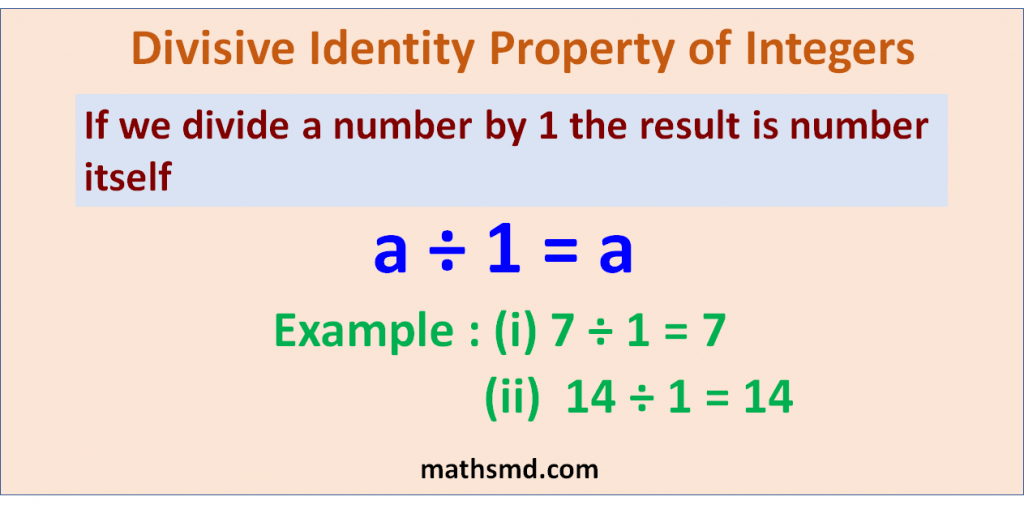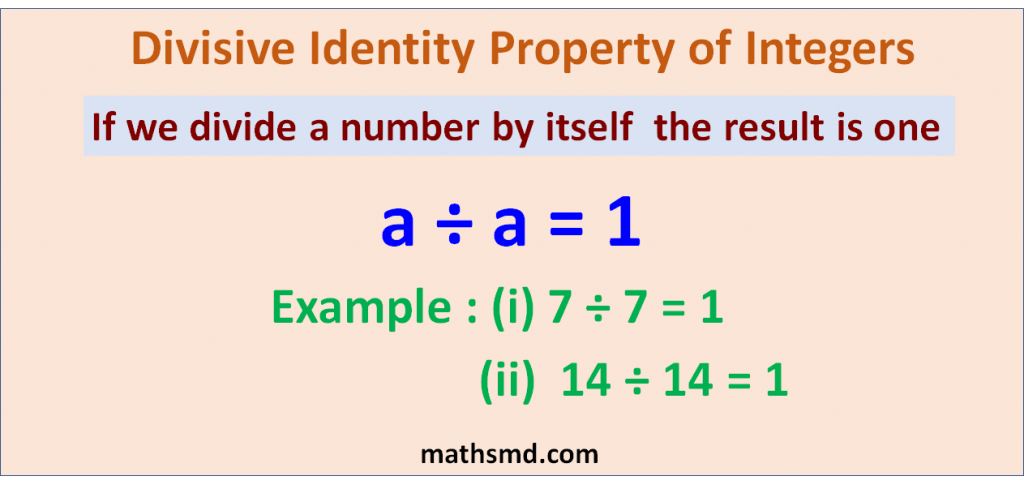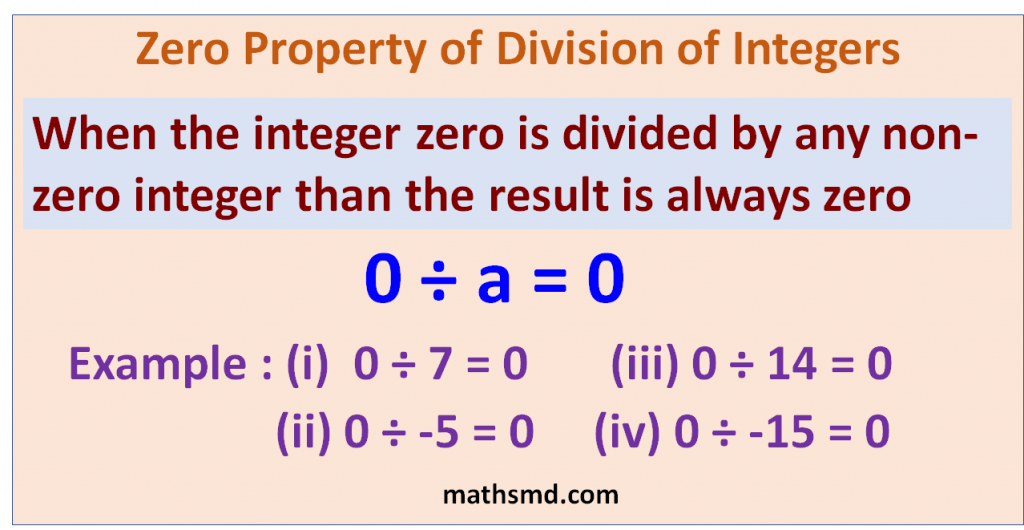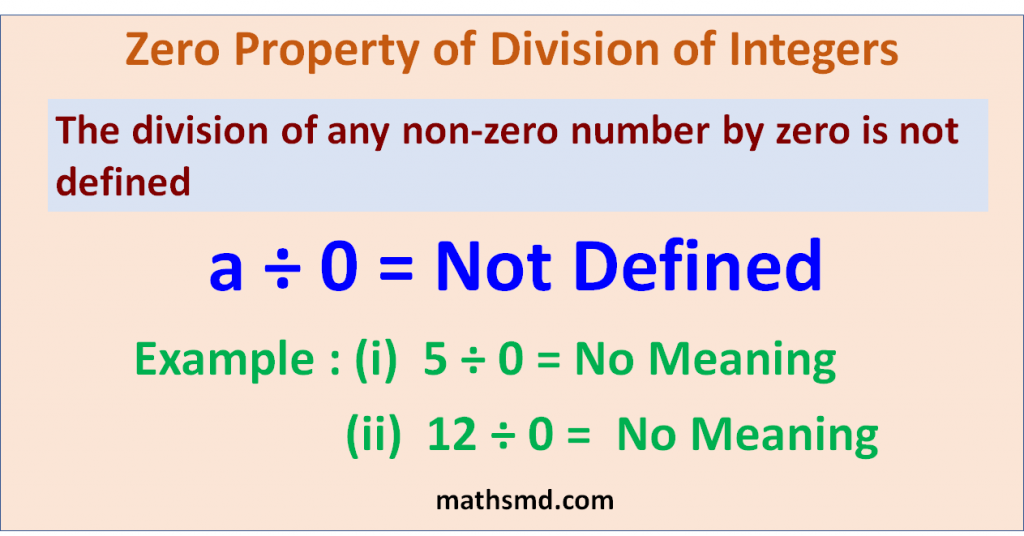Division Property for Integers-Divisive Identity and Zero Division Property
Property of Integers – Divisive Identity
What is Divisive Identity Property
The divisive identity property is one of the important property of division of numbers.
This property states that, if we divide any number by 1, the result will be the number itself.
Divisive Identity Property of Division
The divisive identity property of division has two rules.
Rule 1: Dividing any number by 1 equals the number itself.
or
Any number divided by 1 will stay the same number.

Example: 25 ÷ 1 = 25, 135 ÷ 135 = 135
For any Integer a, a ÷ 1 = a
Rule 2: If any integer is other than zero, is divided by itself, than result will be one.
Example: 74 ÷ 74 = 1, 243 ÷ 243 =1
For any Integer a, then a ÷ a = 1

Zero property of Division
The zero property of division has two rules.
Rule 1: If we divide zero by any number the answer will be zero.

Example: 0 ÷ 3 = 0, 0 ÷ -6 = 0,
Therefore, any non zero integer
0 ÷ a = 0
Rule 2: If any number is divide by zero, then the problem cannot be solve.
or
Division of any non-zero number by zero is meaningless, because division by zero is not defined.

a ÷ 0 = Not Defined
Therefore, 1 is also called divisive identity.
This property is also true for multiplication, because multiplying 1 to any number equals the number itself.